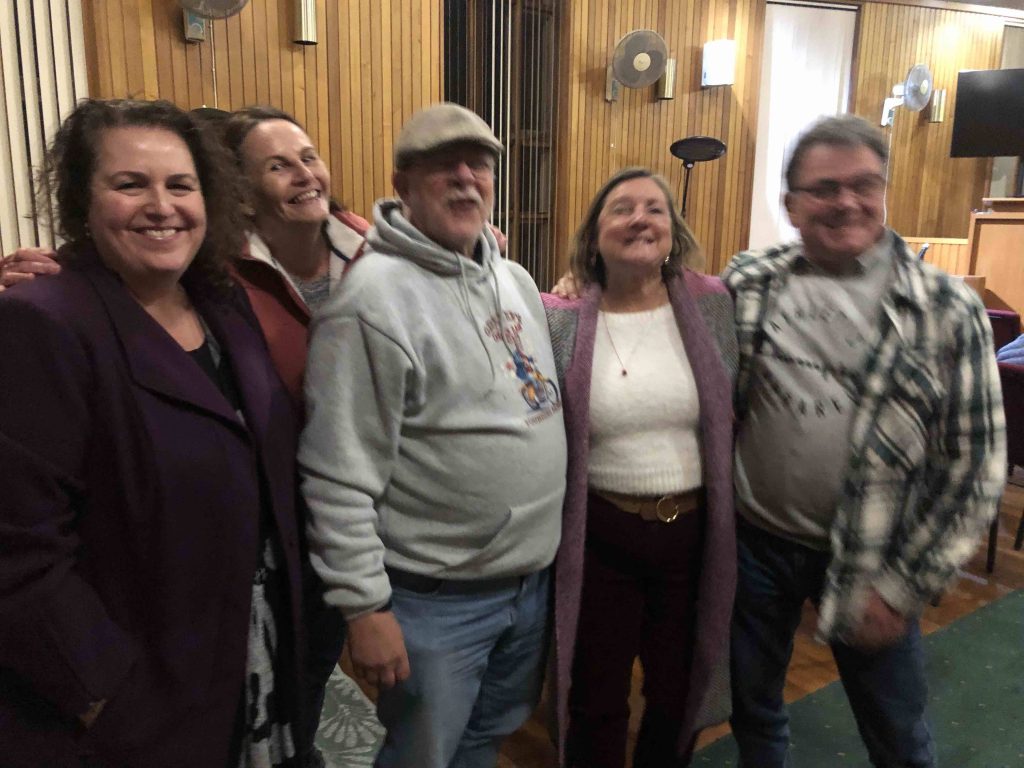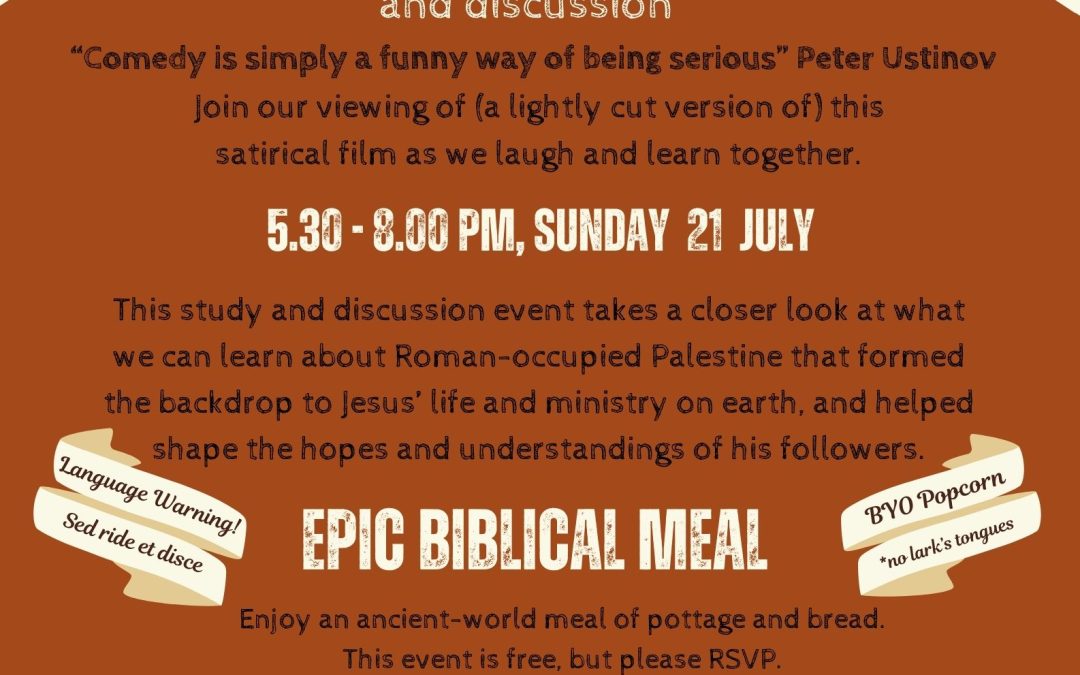


What better way to spend a cold, windy Sunday night than with a steaming bowl of medieval vegetable stew while watching the Monty Python classic in an entirely new light?
The words and actions of Jesus took place in a very specific political and cultural context – for a start, he was living in Roman-occupied Palestinian territory. What effect did the constant presence of Roman soldiers have on the people who came out to hear him, and on Jesus’ own words?
Sue kicked off the evening with a poignant story from Afghanistan, where an Australian colleague experienced first-hand the meaning of a local proverb, “Walls have mice, and mice have ears”. When it is very dangerous to be overhead complaining about local or provincial leaders, or even the wealthiest man in the village, people find other ways of expressing themselves with bland factual statements that, when taken in context, assume new meanings. How can we re-approach the parables and other stories of Jesus if we imagine them being told in their original context?
“Life of Brian” offers up plenty of opportunities to take in the visuals of the Roman occupation as well as the impacts upon the local populace, so everyone settled back to take a new look with fresh eyes. We also enjoyed some interesting trivia about the making of the film in Tunisia and a couple of unexpected cameos.
Some questions we considered:
What are the main duties of the Roman soldiers? When do they interact with the locals? When don’t they?
The Pharisees tried really hard to create a holy society with a ‘purity culture’ approach. In presiding over the stoning, the Chief Priest (a Sadducee) is demonstrating his zealousness for the Law in stamping down on blasphemy. Where do you see similar attempts in parts of our own Western society?
Brian’s mum never even has a name of her own. We see her just trying her best to survive and get by – even if that means interacting with the occupying forces without hostility. How might this have been true for Jesus’ listeners, straddling two worlds?
‘Hail Caesar’ is the greeting amongst all good citizens that signals loyalty, as does ‘Caesar is Lord’. Jesus and his followers seize the language of the oppressor and subvert it, not only replacing who is Lord but also redefining leadership. How dangerous is saying ‘Jesus is Lord’?
Reg and the gang list all the things the Romans “have done for us”. Historians have evidence that regional micro-climate change was just one effect of the Roman Empire and its voracious appetite for timber, stone, slaves, wool, flax, wheat and wine. Which benefits of the so-called Pax Romana would have in fact been enjoyed by ordinary Judeans?
We often think of Jesus speaking to small groups or large crowds in a quiet place, but in this film we do not see any public places that are not under the watchful eye of Rome. How might that impact a speaker’s choice of words?
While his home is being searched, Matthias uses low-level non-violent defiance, and even humour, to maintain his own dignity. The jailers assume different personas in public. Do you know any stories of people in other dictatorships or military occupations exercising a level of passive resistance to preserve their sense of self?
Brian struggles to get out of the apartment when it’s been invaded by the crowd. Would the crowds have mobbed Jesus like this?
We hear Jesus’ words being discussed by the members of the People’s Front of Judea, and then later on when Brian hastily grabs some snatches of words to repeat from the prophet’s “soapbox” in the marketplace. Do you think Jesus spoke his parables and other teachings once only to a certain crowd, or might he have said them over and over again in different places and to many different people (and sometimes the same people, if they heard he was back in town)?


Recent Comments